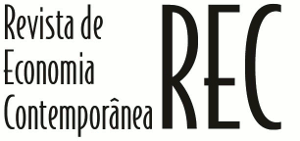The article analyses, theoretically and empirically, the relationship between exchange rate level and economic growth in emerging and developing countries. Firstly, the exchange rate policy objectives are discussed, emphasizing the importance of this policy to generate economic growth. Continuing, the article explores the channels through which exchange rates can affect economic growth, highlighting its stimulus to investment, export of non-traditional goods, productivity as well as its compensation to market failures and its stimulus to export income-elasticity. In the empirical part, a measure of exchange rate undervaluation based on Rodrik (2007) is built for 82 emerging and developing countries, between 1980 and 2007. This measure is used to investigate the relationship between devalued exchange rate and economic growth, by econometric techniques for panel data. The result of the estimations point out the positive correlation between undervalued exchange rate and economic growth, confirming the importance of the exchange rate as an instrument to promote economic growth and development.
exchange rate policy; economic growth; developing countries










